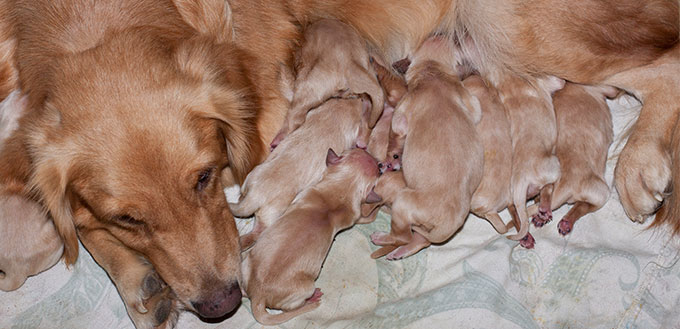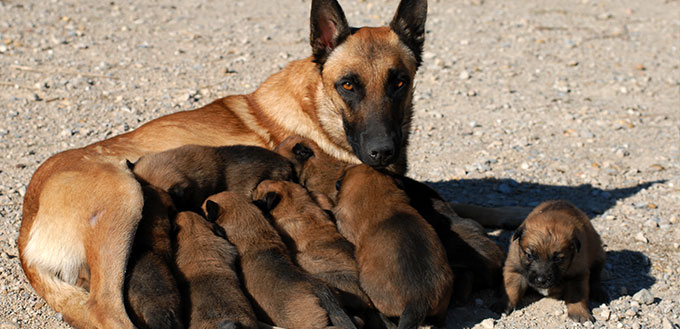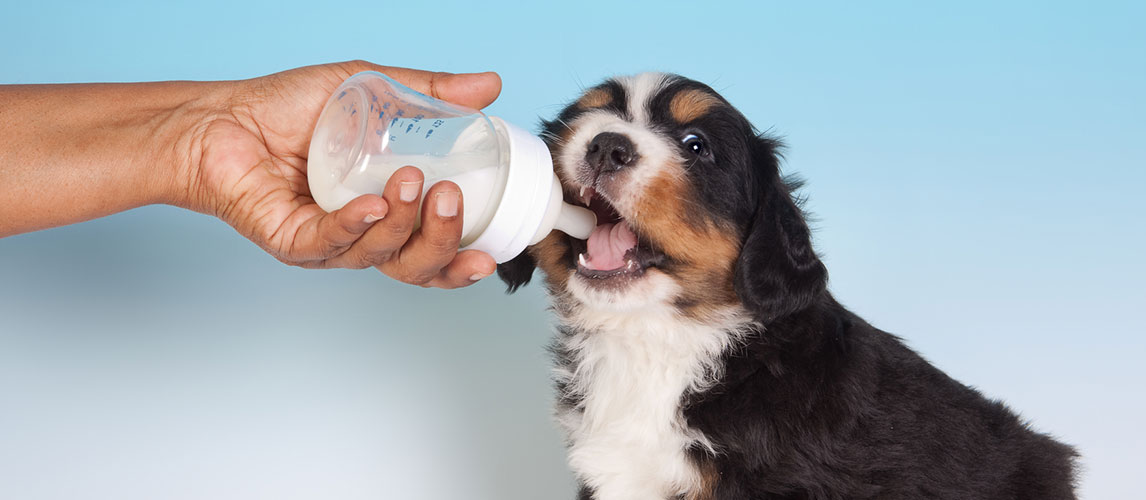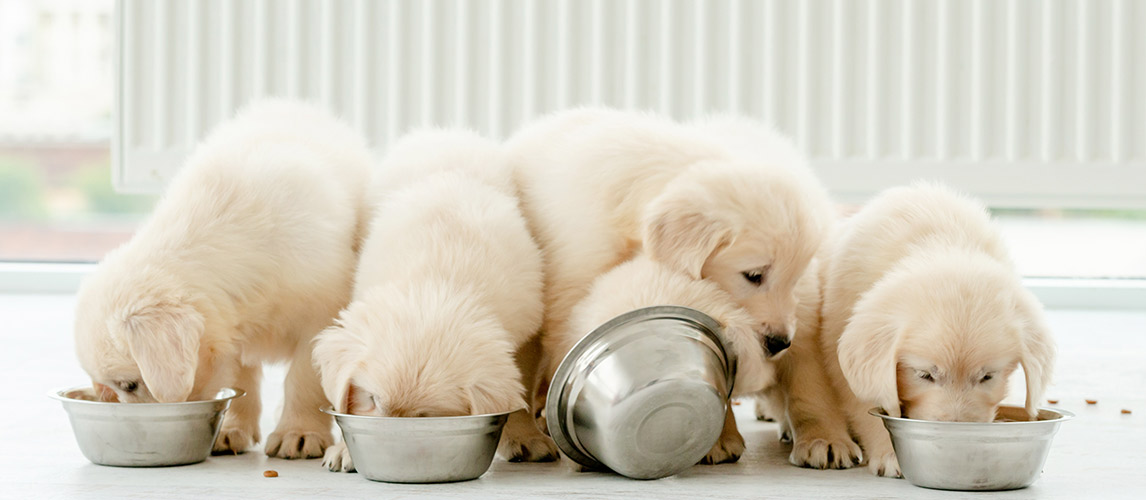There is this notion that a mother dog will reject its newborn puppies if a human ever laid a hand on their little ones. And while there may have been circumstances in the past where dogs were observed to have rejected one, some, or all of their puppies simply because a human touched these pups, all of these are mere coincidences. Let’s dig deeper.

Why Some Mother Dogs May Reject Newborns
There are a number of reasons why a mother dog may reject its newborn puppies and being touched by a human is never one of them. A rejected pup is almost always a sign that something is wrong with the little hound. It is for this very reason that these ‘rejected’ puppies be handled with so much care so that they can be brought to the vet for further evaluation and hopefully, more definitive treatment and care.
But why do some mother dogs reject their puppies anyway?
- Puppy Illness
We know that dogs have this uncanny ability to ‘smell’ disease in humans. If they have such a remarkable ability ‘sensing’ the diseased state of a species far different from theirs, what more if it’s the same species? On top of that, it’s their offspring? There is compelling evidence that mother dogs that reject one or some of their newborn puppies somehow sense something wrong with the pup or pups. It is possible that the puppy has a congenital birth defect, a viral or bacterial infection, or even anemia.
While it may seem very uncharacteristic of dogs to simply abandon or neglect their pups, there is logic to it. Mother dogs can sense if a puppy is failing to develop. If it does, the mother dog will stop supporting or caring for this pup so that it can focus all of its energies and resources to the remaining puppies. For the mother dog, a puppy that is failing to grow is interpreted as a sign that the puppy will not survive.
It is in these situations where you have to act fast. The mother dog doesn’t have the ability to treat its failing pup. Only you and your vet can. So, don’t ask yourself “will my dog bite me if I touch her puppies?” What’s more important is for you to bring the ‘rejected’ pup to the vet.
- Mother Dog’s State of Health
The puppies may be healthy and well, but if the mother dog is also sick, then it may not be able to fulfill its ‘motherly’ responsibilities. For example, dogs that just gave birth are prone to developing inflammation of the breast. It becomes very painful if the puppies nurse. It is also possible that the dog may have suffered post-birth complications such as an infection of the uterus. These can prevent the dog from caring for its young, making us believe that it is rejecting them.
If you see signs like pus-like secretions or discharges from its teats or even vagina, it is imperative that you bring the mother dog to the vet for further evaluation and treatment. We also need to bring along the newborn puppies as they will also require supportive care.
- Lack of Motherly Instinct
If the puppies are generally healthy and the mother dog doesn’t have any complications from the birth process but seems to be rejecting its puppies, then you may have what people call an inexperienced mother. Technically, it has nothing to do with having the experience of being a mother dog or not. It has something to do more with the insufficient amounts of oxytocin in the mother dog’s blood.
Oxytocin is otherwise known as the cuddle hormone or the love hormone since it is usually elevated during moments of intimate social bonding. Oxytocin is also implicated in the expression of motherly behavior such as caring for the young. Without this hormone, it is possible that the mother dog will reject its young.
In such cases, it is a must that the mother dog be separated from its puppies as the lack of maternal care may be supplanted by aggression towards the little ones. The puppies can thus be hand-fed using a suitable replacement formula designed specifically for puppies. This should be with the expressed recommendation of your vet. The puppies also need to be kept warm either with the use of a heating pad or covering them with a relatively thick towel.

Can You Touch Newborn Puppies?
It is clear from our discussion above that you can touch newborn puppies, but the question remains: when can you hold newborn puppies?
Ideally, you should never touch your mother dog’s puppies for the first few days of their lives, unless you see that the mother dog is ‘neglecting’ or ‘rejecting’ one or some of these puppies as we have explained above. Only in such instances when one puppy is not receiving the kind of care that is expected from its mother should you go in and intervene. Otherwise, they are perfectly fine with their moms.
However, just in case you do want to touch the newborn puppies, it is important to do so with a deliberately slow and gentle manner. Gentle touch is required as these very young dogs may still have bones that have not completely fused. You can run one or two fingers along the puppy’s back and sides, supporting its body by gently placing your hand underneath. Be very careful as these are very fragile creatures.
The American Society for the Prevention of Cruelty to Animals strongly recommends very minimal handling of young puppies for the first 3 weeks of their lives. If it cannot be avoided that the puppies have to be handled, only gentle petting is allowed.
As the puppies reach their 4th week of life, they can now be handled but only for very brief periods and only for a couple of times per day. It may also be wise to limit the number of persons allowed to handle the puppies so as not to stress them so much.
Mother dogs seem to reject their newborn puppies because they sense something is wrong with their newborns or that the mother itself is not feeling well. There are also those that may not have the correct hormone to facilitate motherly love. Nowhere in this article did we mention that touching the puppies will lead to their mother rejecting them.
Sources:
- Susan Paretts, Why Would a Mother Dog Reject a Newborn Puppy?, Pets The Nest
- Caring for a Newborn Puppy, Web MD






